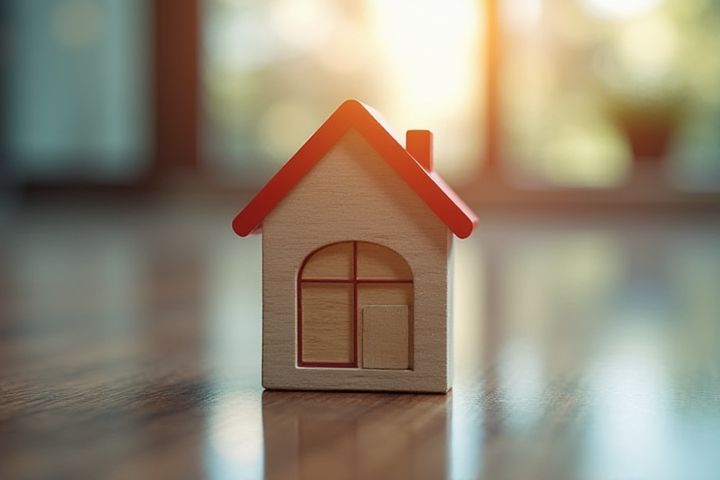
House insurance is primarily determined by various factors, including the location of the property, its age, and construction materials. Insurance companies assess the risk of natural disasters, crime rates, and local claim history in your area. Additionally, the value of your home, including its contents, plays a crucial role in setting premiums, alongside coverage limits and deductibles chosen by you. Home security features, such as alarms and surveillance systems, can also lower your insurance premiums. Lastly, your credit score and previous claims history may influence the insurer's assessment of the risk associated with your property.
What Determines House Insurance
Location and risk factors
House insurance premiums are significantly influenced by location due to varying risk factors associated with different areas. For instance, properties in flood-prone zones typically face higher insurance costs due to increased claims risk, while homes in areas with low crime rates may enjoy lower premiums. Proximity to fire stations, earthquake susceptibility, and weather patterns also play crucial roles in determining coverage rates. Understanding how these location-based risk factors affect your policy can help you make informed decisions about your home insurance options.
Home construction materials
Home construction materials play a crucial role in determining your house insurance premiums and coverage options. Insurers assess the durability, fire resistance, and weather resilience of materials such as wood, brick, and concrete to evaluate risk levels. Homes built with fire-resistant materials often receive lower premiums due to reduced fire hazards, while those with wood framing might face higher costs due to increased vulnerability. Additionally, specialized materials like impact-resistant windows can further influence your policy, reflecting a homeowner's proactive efforts in risk mitigation.
Property's age and condition
The age and condition of a property are critical factors in determining house insurance premiums and coverage. Older homes may possess outdated materials, systems, and construction methods, which can increase the risk of damage or failure, prompting insurers to charge higher premiums. Furthermore, the overall condition of the property, including any necessary repairs or renovations, will affect the assessed risk; well-maintained homes typically receive better rates. Insurers evaluate these aspects to ensure adequate coverage while balancing risk, making property upkeep essential for lowering insurance costs.
Coverage limits and types
House insurance depends on various factors, including coverage limits and types that protect you from specific risks. Typically, coverage limits are set based on the estimated cost to rebuild your home, including the value of personal belongings, usually ranging from $100,000 to several million dollars. Standard policy types, such as HO-3 or HO-5, provide protection for dwelling, personal property, and liability, with HO-5 often offering broader coverage. Understanding these elements is crucial to ensuring you select adequate limits that match your needs and risks in your area.
Deductible amount chosen
The deductible amount you choose for your house insurance significantly impacts your premium costs and claims process. A higher deductible typically results in lower monthly premiums, as you're accepting greater out-of-pocket expenses in the event of a claim. For example, opting for a $1,000 deductible could save you 10-30% on your premium compared to a $500 deductible. It's essential to balance the deductible with your financial capacity to ensure you're protected without overextending your budget during unforeseen circumstances.
Insurance claim history
Insurance claim history significantly impacts your house insurance premium and coverage options. A history featuring frequent claims can lead to higher rates, as insurers perceive you as a higher risk. Conversely, maintaining a claim-free record over a period, typically five to seven years, may qualify you for discounts or lower premiums. Insurers also evaluate the nature and severity of past claims to assess the likelihood of future incidents, which ultimately influences their underwriting decisions.
Security systems and safety features
House insurance premiums often hinge on the security systems and safety features integrated into your home. Properties with advanced security measures, such as burglar alarms, surveillance cameras, and motion-sensor lighting can reduce premiums by up to 20%. Insurance providers assess safety features like smoke detectors, fire extinguishers, and reinforced doors to mitigate risks, potentially lowering your overall coverage costs. Installing robust security systems not only enhances your safety but can also significantly impact your insurance rates and availability of coverage options.
Proximity to emergency services
Proximity to emergency services significantly influences house insurance premiums and coverage options. Homes located near fire stations and medical facilities often receive lower insurance rates due to reduced response times in emergencies, minimizing potential damage. Insurers evaluate the distance to these essential services when assessing risk; the closer the proximity, the more favorable the policy terms. Knowing your home's location relative to emergency resources can empower you to secure better insurance deals and protect your investment effectively.
Local crime rates
Local crime rates play a significant role in determining house insurance premiums, as insurers assess the risk associated with insuring properties in neighborhoods with higher crime levels. Locations with elevated burglary, vandalism, or violent crime rates often lead to increased claims, prompting insurers to adjust their rates accordingly. Statistically, homes in areas with lower crime rates tend to attract better premium discounts, reflecting a reduced risk for insurance providers. Understanding the crime data specific to your local community can help you make informed decisions when purchasing home insurance.
Personal credit score
Your personal credit score significantly influences your house insurance premium, as insurers often assess financial responsibility when determining risk. A higher credit score, typically above 700, can lead to lower premiums, while scores below 600 may result in increased rates or denied coverage. Insurers utilize data from credit reporting agencies, evaluating your payment history, outstanding debts, and credit utilization ratios. Maintaining a solid credit profile not only helps you qualify for better rates but may also offer more options for coverage and policy benefits.
